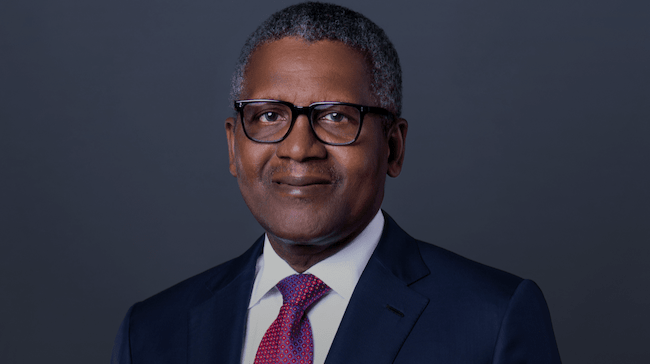
Chairman of Dangote Petroleum Refinery, Aliko Dangote, has revealed plans to list between five and 10 percent of the refinery’s shares on the Nigerian Exchange (NGX) Limited within the next 12 months.
Speaking in an exclusive interview with S&P Global, Dangote said the proposed listing would follow the model of other Dangote Group subsidiaries already traded on the stock market, such as Dangote Cement and Dangote Sugar Refinery.
“We don’t want to keep more than 65 to 70 percent,” Dangote stated, explaining that the refinery’s shares would be offered gradually, depending on market conditions and investor demand.
The billionaire industrialist also disclosed that his group is in talks with strategic investors from the Middle East to support the refinery’s expansion and a new petrochemical project in China.
“Our business concept is going to change. Now, instead of being 100 percent Dangote-owned, we’ll have other partners,” he said.
Dangote further hinted that the Nigerian National Petroleum Company Limited (NNPCL) could increase its current 7.2 percent stake in the refinery as discussions continue into its next growth phase.
“I want to demonstrate what this refinery can do, then we can sit down and talk,” he added.
The $20 billion Dangote Refinery, which began operations in 2024, currently has a production capacity of 650,000 barrels per day (bpd) but plans to scale up to 700,000 bpd by the end of this year. Dangote said the long-term target is to reach 1.4 million bpd, surpassing India’s Jamnagar Refinery, the world’s largest, which produces about 1.36 million bpd.
Beyond refining, the company is also expanding into chemical manufacturing, with plans to increase polypropylene output from one million to 1.5 million metric tonnes annually, while developing new projects in base oils and linear alkylbenzene.
On ongoing maintenance and technical adjustments, Dangote noted that most operational issues have been resolved but hinted at a possible one-month shutdown to fine-tune operations.
“We have resolved most, not all, but most of the problems. And I think we’re looking for a window when we shut down for another month,” he said, adding that the downtime would be scheduled to avoid disruption during the year-end surge in fuel demand.
With its growing output, the refinery is already being credited with boosting Nigeria’s domestic fuel supply and positioning the country as a potential regional energy hub.



